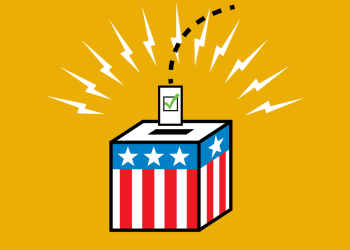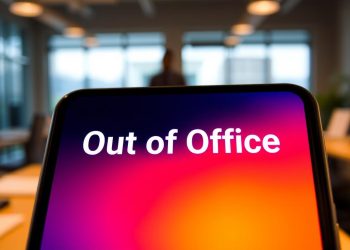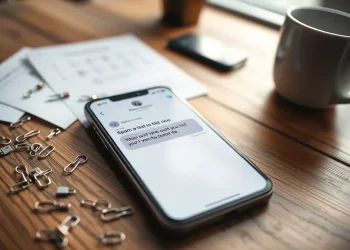In today’s world, text messages are essential for both personal and professional communication, as well as for legal purposes. You may need to retrieve deleted texts, use them in court, or comply with public records laws. This guide will show you how to obtain text message records in the United States.
Legal Framework Surrounding Text Message Records
Federal Laws and Regulations
The Electronic Communications Privacy Act (ECPA) regulates who can access your text messages. It states that service providers can’t share your messages without your consent or a court order. The Stored Communications Act (SCA) is part of the Electronic Communications Privacy Act (ECPA). It indicates when service providers can disclose your stored messages to the government.
State-Specific Laws
While federal laws set the baseline, states also have their own rules. In some places, texts from government officials are public records.
Methods to Obtain Text Message Records
1. Through Your Mobile Carrier
Major U.S. carriers, such as Verizon, AT&T, and T-Mobile, retain some text information for a limited period. But they usually don’t keep the messages themselves for long.
Steps to Request Records:
- Contact Customer Service: Speak with your carrier’s customer support team.
- Provide Necessary Information: Be prepared to present your identification and account details.
- Submit a Formal Request: Some carriers may require a written request or legal documents to proceed with the transaction.
Getting the message content often needs a subpoena or court order.
2. Accessing Messages on Your Device
For iPhone Users:
- Recently Deleted Folder: iOS 16 and later allow you to recover deleted texts for 30 to 40 days from the Messages app.
- iCloud Backup: If you have iCloud Backup enabled, you can retrieve your messages.
- iTunes/Finder Backup: You can also get messages from backups on a computer.
For Android Users:
- Recycle Bin Feature: Some Android devices, such as Samsung, feature a recycle bin in the messaging app. It allows you to retrieve deleted texts.
- Google Drive Backup: You can retrieve messages from a Google Drive backup if it was enabled.
Receiving messages from backups may overwrite your current data. Make sure to save your current stuff before you do it.
3. Utilizing Third-Party Applications
Several third-party apps can help get back deleted or hard-to-access text messages:
- Dr.Fone: Works with both Android and iOS devices for data recovery.
- PhoneRescue: Offers comprehensive recovery options for various data types.
- DroidKit: Focuses on getting back deleted messages and other data on Android devices.
Make sure the third-party apps you use are safe and trustworthy.
4. Legal Channels
In legal cases, getting text message records might involve:
- Subpoenas: Legal papers that force the release of records.
- Court Orders: Orders from judges that require sharing information.
Obtaining these records often requires assistance from legal experts.
Best Practices for Managing Text Message Records
- Regular Backups: Back up your device often to keep messages safe.
- Use Messaging Apps with Cloud Sync: Apps like WhatsApp and iMessage save message history in the cloud.
- Maintain Clear Communication Policies: For businesses, establish guidelines for storing and accessing messages to ensure clear communication.
Text Messages as Legal Evidence
Text messages are now used as evidence in many legal cases. This includes criminal trials, civil lawsuits, and family law cases. They can show intent, support timelines, or challenge what people say. For example, during the January 6 hearings, text messages played a crucial role in revealing what people did before the Capitol attack.
Admissibility Criteria
For a text message to be used in court, it must meet specific criteria:
- Legally Obtained: It must be obtained through legal means, such as with the sender’s consent or a court order.
- Authenticated: It must be proven real, often through metadata, witness statements, or device records.
- Relevant: It must be directly connected to the case.
Courts closely examine the message’s context and content to determine if it’s useful as evidence.
Employer Access to Employee Texts
Employers can review texts on company devices if employees are aware that their communications are being monitored. But, looking at personal devices without permission can be a privacy issue. The Electronic Communications Privacy Act (ECPA) establishes guidelines for employer monitoring, emphasizing the importance of clear policies and employee awareness. Wikipedia
Public Records and Government Communications
Texts from public officials on official business might be public records. In some instances, individuals can request these records under the Freedom of Information Act (FOIA) or local laws. However, what is allowed can vary by location, and some information may be kept confidential.
Emergency Access and National Security
In emergencies or for national security, there are special rules for getting text message records:
- Emergency Disclosure: In urgent situations, service providers can share information if they believe there is a danger of death or serious harm.
- National Security Letters (NSLs): The USA PATRIOT Act permits government agencies to obtain non-content information, including metadata, without a judge’s prior approval. However, they can’t force people to share message content.
Best Practices for Individuals and Organizations
- Regular Backups: Utilize cloud services or backup tools to safeguard message histories.
- Clear Policies: Companies should establish and communicate rules regarding the use of company devices and the monitoring of messages.
- Legal Consultation: Obtain expert legal advice when handling sensitive messages or when uncertain about accessing records.
Conclusion
Obtaining text message records in the U.S. is a complex process, involving numerous legal and technical steps. Whether for personal, professional, or legal reasons, understanding the correct steps and respecting privacy laws is crucial. Always talk to a lawyer when unsure about following the law and protecting everyone involved.
Note: This article is for informational purposes only and does not constitute legal advice. Consult with a qualified attorney for specific legal guidance.














